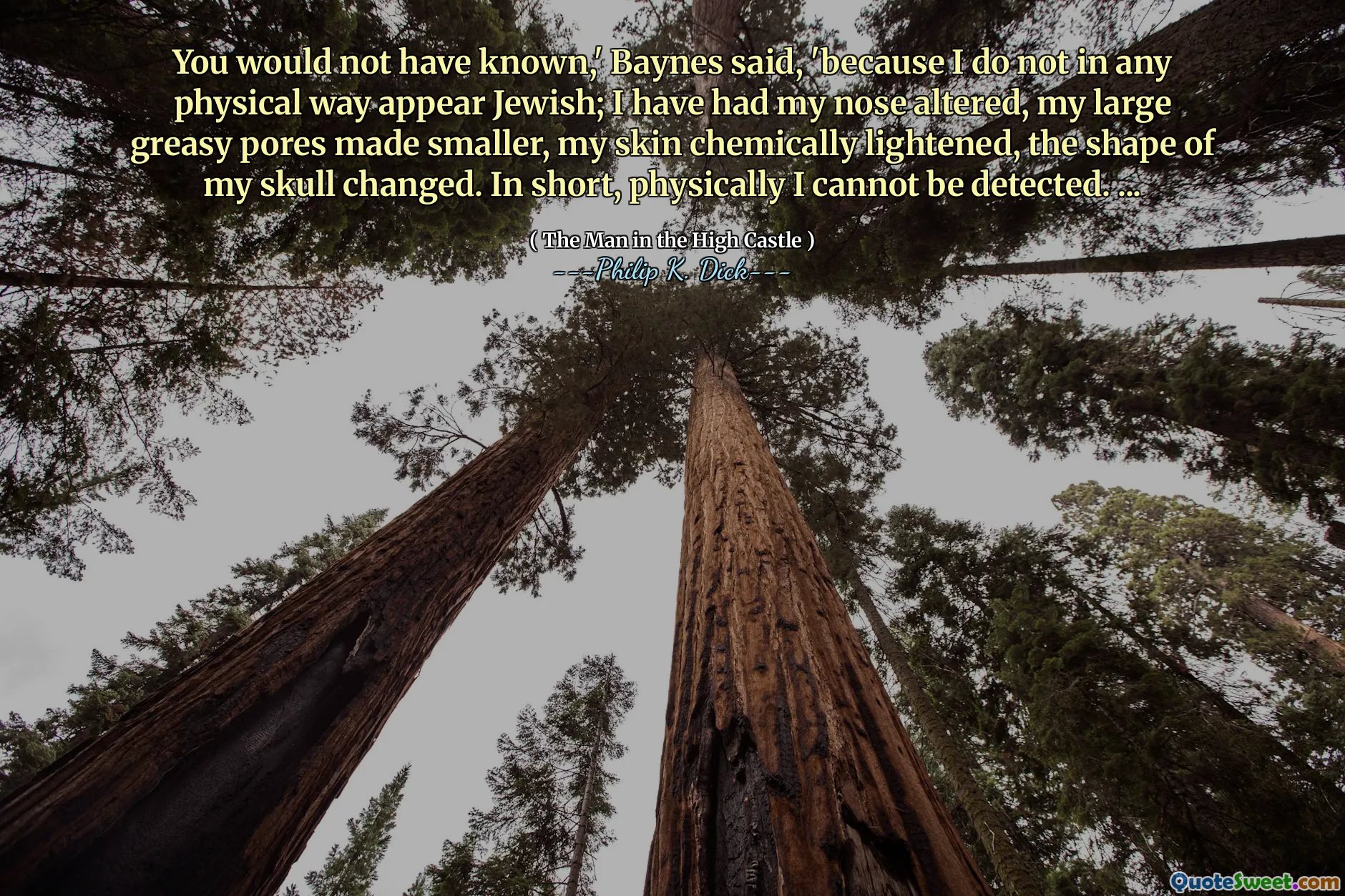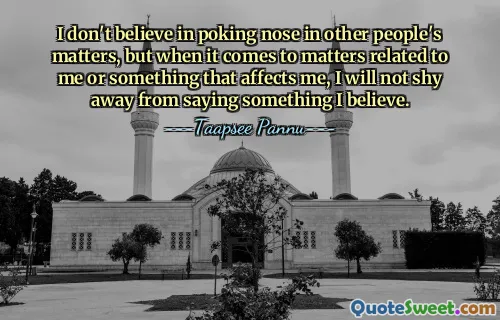
You would not have known,' Baynes said, 'because I do not in any physical way appear Jewish; I have had my nose altered, my large greasy pores made smaller, my skin chemically lightened, the shape of my skull changed. In short, physically I cannot be detected. ...
In Philip K. Dick's "The Man in the High Castle," the character Baynes reflects on his identity and the lengths he has gone to hide his Jewish heritage. He reveals that he does not present any physical signs of being Jewish due to various alterations he has undergone, such as cosmetic surgeries that modify his appearance. This transformation emphasizes the tension between identity and the external perceptions of society, showcasing the extremes individuals might resort to for survival in a world marked by discrimination.
Baynes's statement highlights the profound impacts of societal expectations and the fear surrounding ethnic identities in a dystopian context. His experience raises questions about authenticity and the essence of identity when external features can be manipulated. Through Baynes, Dick explores the complexities of belonging and the disconnection between one’s true self and how one is perceived in a hostile environment, illustrating a poignant struggle for acceptance and safety.









